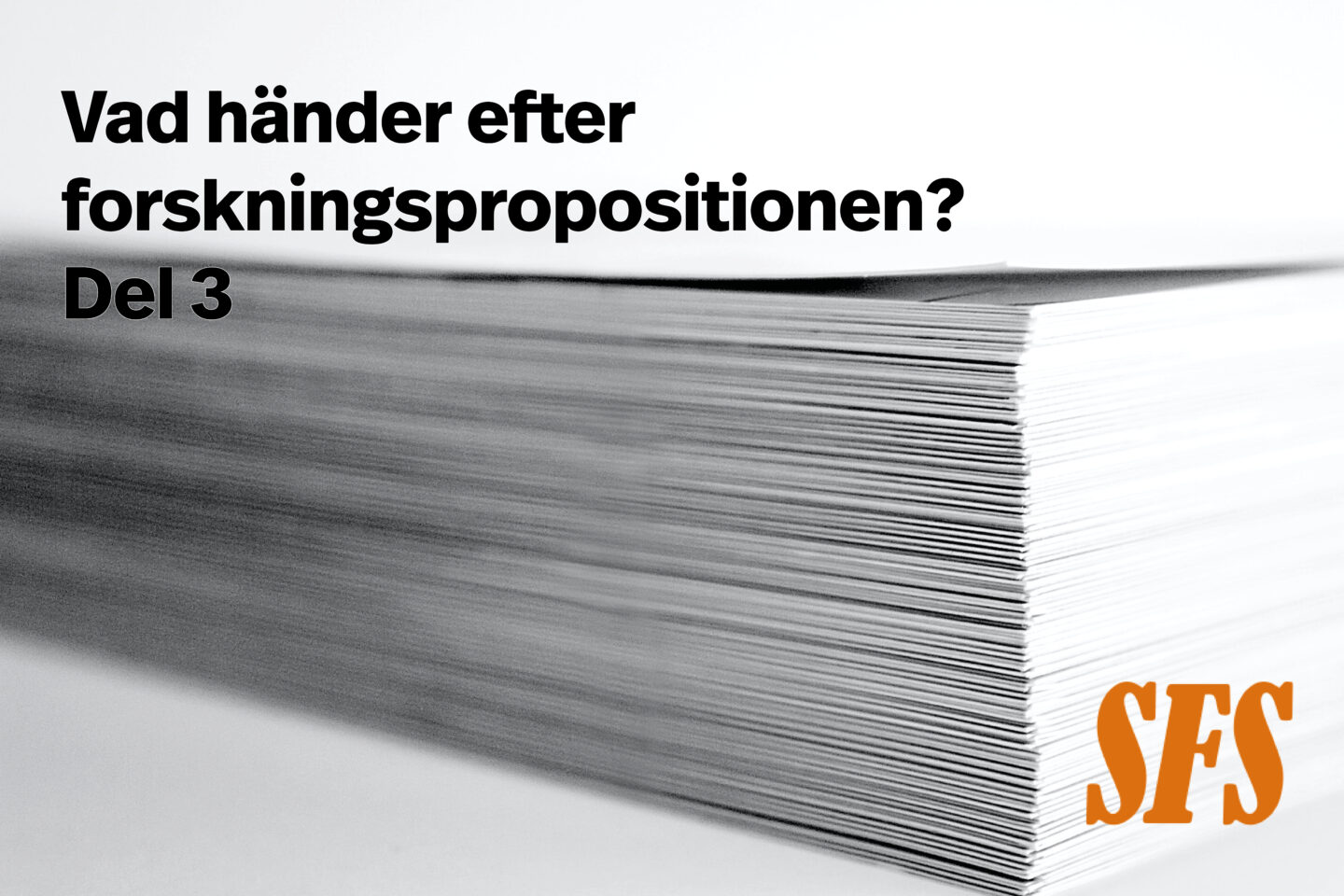With the previous research bill presented in 2016, the government announced that an investigation would be appointed into the university's resource allocation system. Many in the higher education sector welcomed the inquiry, which would produce solution proposals for several problems in the sector.
One of the most pressing problems has been the price tag system, ie the compensation system for education. The higher education institutions receive compensation for each registered student converted to the number of full-year equivalents (HST), and compensation for performance (HPR) in the form of how many higher education credits the students take. This is questioned for several reasons. Among other things, because it steers resources away from the educations that are most in need of quality reinforcements, while at the same time providing incentives to lower the requirements for admitting more students.
Another problem with HPR benefits is that courses that are suitable for lifelong learning, ie courses in the evening, part-time and distance that are more accessible to professionals, have significantly lower throughput and thus receive lower benefits.
The Control and Resources Inquiry (Strut) was appointed in 2017 and submitted its final report in early 2019. Strut submitted a proposal for a new resource allocation system for higher education. In the model, the appropriations for education would not be as directly linked to the number of students. The distribution based on full-year performance would be removed completely.
Even before the research bill was presented, it was clear that some of the Control and Resources Inquiry's proposals would be included. These included amendments to the Higher Education Act to strengthen academic freedom and clarify the higher education institutions' responsibility for lifelong learning. During the consultation round, several consultation bodies pointed out the need to remove the HPR part in order for the assignment on lifelong learning to have an effect. According to SFS's summary, it was one of the proposals that had the most support from the consultative bodies.
One of the very few consultative bodies that were negative to the Control and Resources Inquiry's proposal was the Swedish National Audit Office, despite the fact that they themselves criticized the system in other reports. They highlighted the value of giving universities higher incentives for throughput. The problem with this reasoning is that the HPR system does not favor throughput on programs but only possibly courses. When the throughput of individual courses in programs decreases, the number of admitted students increases and vice versa. Higher education institutions can thus in theory receive full allocation with the current system without a single student graduating from educational programs such as teachers, engineers and nurses that the state currently seems to be so interested in. The effect will instead be that individual teachers, who each year are given less resources to work with, are forced to lower the examination requirements and in turn the quality of education.
The government seems to have partially addressed the problems with HPR. When the government earmarked 3 new training places for lifelong learning in the autumn budget 000, the performance-based component was not included. The compensation amounts must instead be paid in full for each registered full-year equivalent. The message was a step in the right direction.
The HPR price tags cause a problem for all programs and the 3 new places that are exempt from the rules correspond to only one percent of all full-time students.
SFS and many of us hoped that the government would clarify what will happen to the price tag system with the new research bill. The Control and Resources Inquiry proposed a completely new system. Even if the government does not want to go ahead with that particular proposal, there is a need for broader reform of the system. However, the question was left completely unanswered in the bill.
Just as we described in the blog post on dimensioning of doctoral education, so far only point initiatives have been presented, despite the fact that what needs to be remedied is a system error. The 3 new places will not be evaluated until 000 at the earliest. Then it is too late to do anything before the next election. The 2022 budget bill will not be submitted until after the election.
There is still time for a broader reform of the price tag system, but time is running out. The last opportunity to make a sharp proposal will be with the autumn budget later this year. Sweden needs a new resource allocation system that puts the student's learning at the center and puts an end to the quality-inhibiting structures that exist today. SFS hopes that responsible politicians will address this and that change will take place in the near future.
Simon Edström, Chairman of SFS
